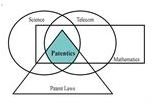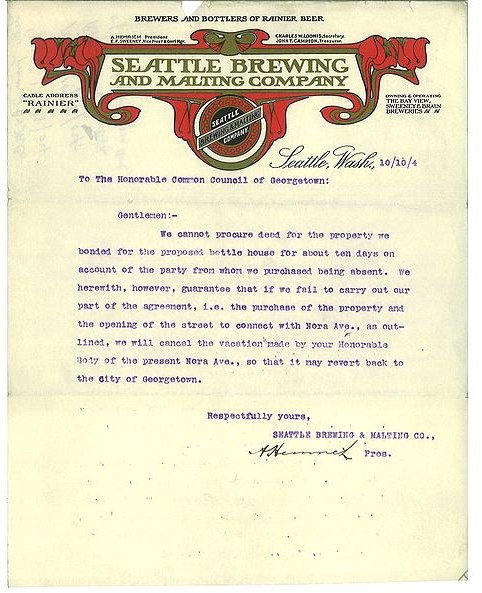Basic Guide to Opening an Escrow Account & its Different Uses in Today's Business Trends
The Origins of Escrow
Queries about the mechanics involved in opening an escrow account and its exact uses, stem from the fact that escrow is a legal instrument whose origins date as far back as the 16th century era.
This medieval term was derived from the Latin word “scroda” and Anglo-French word “escrow” – interpreted as a piece of parchment or scroll, which in actuality referred to a deed. The said deed usually conveyed the formal transfer of ownership for a piece of valuable purchased or acquired. Final conveyance takes place once all conditions such as payment, satisfaction of authenticity or and/or delivery have been met.
As the advent of other deeds and payment instruments for business deals came into the foreground, the use of escrow was forgotten for quite some time. Escrow became a legal term that was rarely used, and mostly, for high-end business deals like company mergers and acquisitions or for court rulings where a trustee will be appointed by the court to act as custodian over funds or property.
In recent years, however, trading transactions became quite complex as fraud became rampant , thus it became important for business deals to institute not only a guarantee of payment but also an assurance of quality performance or delivery. This gave rise to the revival and reinvention of escrow, and its effectiveness has made it a popular tool for closing a business deal.
What is Escrow in Today’s Business Trends?

An escrow today can now be anything of value in the form of money, a deed, a certificate of stock or even a simple written instrument, entrusted to a bonded and licensed holder who provides the custodial services. The latter serves as a neutral third party to two contracting parties who entered into a contract or agreement, usually involving acquisitions or purchases.
As custodian, the service provider will hold on to the escrowed valuables until such time that all conditions agreed upon by the two parties have been met. Compliance or completion to all agreed conditions, serves as the custodian’s authorization to release the specific valuable held in trust, to the contracting party designated as its recipient.
Inasmuch as this facility is now used for varied purposes, opening a deposit account with the licensed custodian will be initiated by different parties to a contract or agreement. A borrower, a seller, a buyer, a renter or even a court-sentenced offender may make use of escrow to serve a specific purpose.
Basic Guides on How to Open an Escrow Account
-
First off, choose your escrow agent carefully, some banks, law offices or title insurance companies offer escrow services but you have to select a company, to which you and the other party, with whom you are entering a contract, are not connected in any way.
-
Consider the service providers with whom your acquaintances or associates have had positive experiences, as your likely choices.
-
A company with a legitimate business place would be a better option. However, you could take further steps by verifying your potential service provider, with the Better Business Bureau for any existing complaints.
-
Bear in mind that bogus or “fly-by-night” companies have proliferated, despite a seemingly legitimate office.
-
Try to gauge the financial integrity of the service provider by its owners or incorporators, by the length of time it has been in existence and its track record for prompt rendering of services.
-
If the company is registered with the Securities and Exchange Commission, get information about its financial condition, to make sure the company is operating with liquid funds. Negative financial indicators like substantial debts, could render your escrowed deposit susceptible to misappropriations.
-
It is possible for a financially unstable service provider to close shop while your business transaction is still pending finalization.
-
You may also want to select a company based on the types of escrow services they provide as well as the fees they charge. Hence, your initial steps should include inquiries and you may have to fill out the firm’s inquiry form, so they can provide you with the right answers to your queries.
-
The proposed escrow facility, the settlement services and the fees, will all depend on the commercial purpose of the contract or agreement for which you and the other party are opening an account.
Please proceed to the next page for the continuation of this section on opening an escrow account.
Basic Guides on How to Open an Escrow Account: (Continued)
-
Both parties to the contract should study the service provider’s proposal carefully and come to agreement whether the services are adequate and the fees charged are reasonable.
-
The potential service provider on the other hand, should explain the mechanics involved in their proposed facility and settlement services. As an example, banks offer different types of escrow accounts, and are maintained as fiduciary accounts, which will be subject to separate terms and conditions.
-
The services offered should include compliance to all legal, federal and state regulatory requirements related to setting up of the deposit account and the release of the valuable in their custody.
-
Once you and the other party have decided on the firm who will act as your service provider, you should provide the latter with the complete details pertaining to the transaction for which the facility will be used.
-
The chosen third party will then draw up the tailor-made escrow agreement and formally carry-out the procedures involved in the acceptance of the conditions by all parties to the contract.
-
You can expect completion of all necessary documents and procedures within 48 hours, after accepting the service provider’s proposal and settlement services, as well as furnishing the required information.
Uses of Escrow
-
In court case rulings, the offending party will be ordered to deposit money with a court appointed trustee. These are funds escrowed for the performance of a judgment or ruling, like environmental cleanups, building repair or project completion.
-
During acquisitions or mergers between large companies, the payment portion in exchange for the value of the company’s receivables, will be escrowed and subsequently released based on a percentage of receivable amounts actually collected by the buying company.

-
The sale of intellectual property involves placing of the proprietary software code in the custodianship of an escrow service provider, to ensure money has been transferred to the seller’s account before the code is delivered to the software buyer.
-
In other cases, payment for the use of software will be held in trust, until after the user is satisfied that the program can be utilized as claimed by the intellectual property owner-provider.
-
In outsourced jobs, the service buyer deposits the agreed contract price with the outsourcing conduit. The latter will release the funds to the outsourced worker, only if the work has been fulfilled satisfactorily and according to the agreed conditions.
-
Mortgage lenders may require their borrowers to set aside money as payment for property taxes and insurance premiums to avoid delinquencies or to ensure continued insurance coverage. The said money will be escrowed and appropriated by a third party, usually a bank or insurer, to the entities designated as recipients on or before the due dates.
-
In real estate buying and selling, the buyer may withhold some of the payment due to the seller and entrust the money to a title insurer. The money will be released only after the title has been verified completely as clean and free from any encumbrances.
-
The real estate seller may also entrust the deed to a property insurer until the buyer has completed his payments for the agreed price. The insurer’s services will include registering the title under the name of the buyer, once the entire amount of monetary conditions in exchange for the property has been completed.
-
In lease or rental disputes, the court may rule in favor of the renter or lessee by granting approval to withhold the rental payment due to the landlord or lessee. However, the monthly payments will be entrusted to a court-appointed trustee. The latter will in turn receive the rental payments and hold it in trust for the landlord or lessor, to be released only if the court approved conditions, such as building repairs, have been completed satisfactorily.
-
Landlords are required to place the renters’ security deposits under a bank facilitated escrow account since they are prohibited from co-mingling the deposit with their personal funds. In addition, interests will be paid to the renter during the period that said deposits are under the landlord’s administration.
These are all instances to which opening an escrow account has become a necessary procedure . Readers may refer to the articles entitled: How to Set Up Escrow Account for Renters and Using the Escrow Account for a House Payment, Can You?, to get more insights about this topic.
Reference Materials and Image Credit Section:
References:
- https://legal-dictionary.thefreedictionary.com/escrow
- https://www.clarity-international.net/Books/Law%20Words.pdf
- https://www.merchant-banking.nl/Specialisations/English/Escrow-Settlement/Escrow/Escrow/The-steps-to-take-to-arrange-an-escrow/page.aspx/15846
Image Credits:
- https://commons.wikimedia.org/wiki/File:Seattle_Brewing_and_Malting_Co._letter,_1904.jpg
- https://commons.wikimedia.org/wiki/File:Patentics_2.jpg
- https://commons.wikimedia.org/wiki/File:Money_Cash.jpg
This post is part of the series: What is Escrow –Its Concept and Its Uses?
Understand the concept of escrow from its very origins through its transformation into becoming one of today’s important business tools. This series provides basic information for opening an escrow account as well as furnish answers to queries about renter’s and mortgage escrows.
